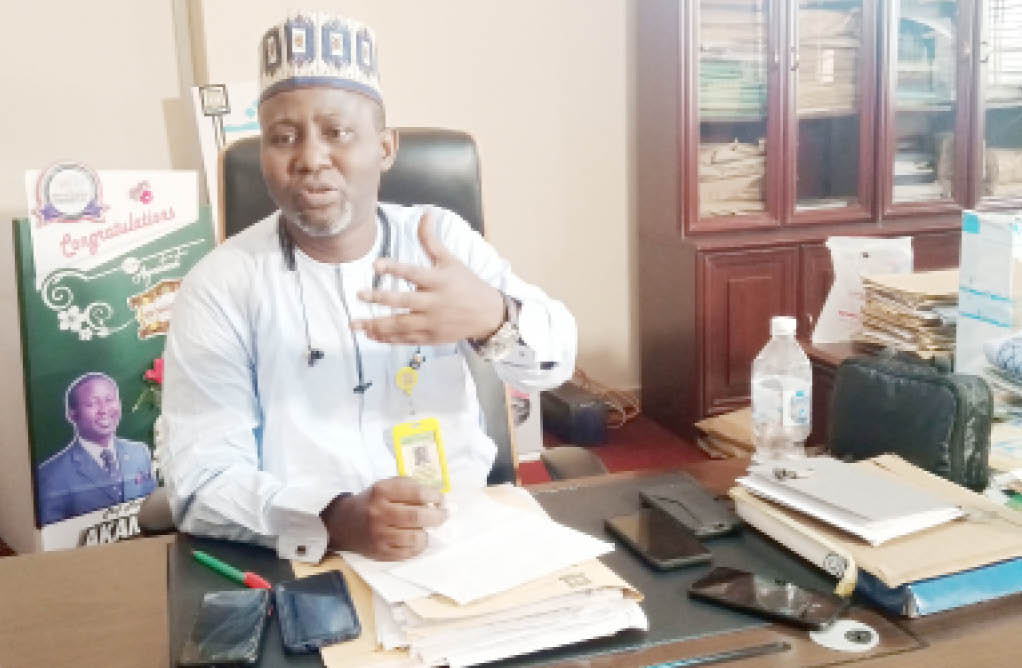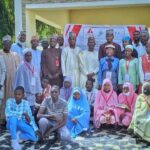The Kwara State University (KWASU) will round up activities marking its joint eighth and ninth convocation ceremonies today (Saturday). In this interview with Daily Trust Saturday, the Vice Chancellor of KWASU, Prof Mohammed Mustapha Akanbi (SAN), addresses sundry issues of interest about the institution and the education sector in the country.
With 21,000 students, how have you been able to handle the issue of hostel accommodation and security?
When I came on board we discovered that out of our 21,000 students, only about a thousand reside on campus. Others were spread across the about 16 communities around Malete and its environs. If anything happens to a student, it is our duty to reach out. We don’t know where they stay, and at times when something happens, by the time we get there, it may be too late. So we came up with the idea of having a students’ smart city where we will have mega hostels and each cluster will accommodate about 1,100 bed spaces. We know the government can’t afford it now, so we have approached the private sector. Modern students want internet and recreation. From our survey, not less than 5,000 of our students go to Ilorin every day to access the shopping mall. Imagine having 21,000 and having 5,000 moving on that road to Malete. So we have a plan to have the KWASU Resort Centre where we will have our own recreation, cinema and shopping mall.
- Daily Trust using golf to promote unity, tourism in Nigeria
- Inside Edo community where people live with dung, blood from abattoirs
It is safer to have our students on campus, and as a result of security threat, the institution now closes by 5pm, and by 6pm everybody is at home. But if they’re on campus, the learning continues. So we’re appealing to the government and the National Universities Commission (NUC) to make it mandatory for students to reside on campus.
University students should not be day students. There is a culture that the university gives to students who pass through it; not that they should stay at home when they don’t have lectures.
What about funding?
We have reached out to the private sector, and you know there are people out there that have money. Big universities all over the world don’t get much from the government; it is mostly from the private sector. KWASU has three things going for it; which are the brand name, asset population and abundant land. The university is young and promising. What we have achieved in the last 10 years, some older universities have not achieved. But we all know the biggest room in the world is that of improvement and we are improving.
While we’re calling on the private sector to partner with us, we want the government to ensure we have policies for the private sector to thrive in a public sector environment.
There have been cases of gross misconduct by students and lecturers; with the recent being a lecturer conducting an examination for a student in a hotel; how has the university responded to this?
There is a connection between anti-social behaviour by students, accommodation and transportation. The world out there expects that we control our students and ensure that they don’t engage in anti-social bevhaviour, but the only time we see these students is when they have classes. 90 per cent of the time they’re out there on their own. This is what happens across the country; not just in Malete.
Look at the increase in cybercrime and use of illicit drugs, how would you hold a VC responsible for that? We have zero tolerance for anti-social activities, and also the staff who are in conflict with our regulation. Since my first day in office, I told my staff that I have zero tolerance for vice, with the first being sexual harassment. The gentleman who disgraced himself engaging in sex for grade is no longer a staff of this university and currently facing prosecution in court. We’re fully cooperating with the security agencies in this matter. He committed an offence and he should pay for it. Same goes for any student who commits crime. Also, we have zero tolerance for admission racketeering. These are things that have a way of tainting the certificate that we give, and the certificate of a university is the integrity test of that university.
Also, we have had series of situations whereby young boys holding meetings are asking their colleagues to come and bow before them before they can contest for a position in the school. They call themselves Duchess and Emperors. But we will not tolerate that.
We realised that a great number of students who belong to these unregistered associations or clubs; I don’t want to use the word secret cult, are transferred students from other universities. Because of this, the senate of the university took a decision that for the next five years, no student will be allowed to be transferred to KWASU from another university. The leader of the last set of boys that were expelled was earlier expelled from LAUTECH.
Why is it difficult for universities to lead in providing solutions to national problems like COVID-19 and Lassa fever?
It all boils down to funding. You all attended an exhibition and you saw what universities can do. That is how all the reputable universities started; whereby people are investing in their projects. Government alone cannot fund a university. How many Africans put in their money into such? I am overwhelmed that my students can really lead such innovations. We saw students making drones from nothing, young girls made a reusable pad, a pumping machine and others. These are policy-oriented researches. If not for funding, we ought to mass-produce them. Then the procedure for accessing funds should be made easy
Universities need several millions before courses can be accredited by NUC, what is your view about this?
It still boils down to the issue of funding. During accreditation, NUC will send a group of professors and pay for their logistics and their accommodation and transportation. The money you pay to the NUC is what they pay to get those officials to go for the accreditation. So if NUC is properly funded, then they will not be asking the universities to pay for verification and accreditation.
How have you improved sports since your assumption of office?
One of the first things I did was to organise the VC’s Cup. I also ensured that despite our little resources, we put in money to support sports and wellness. We’re hoping and planning to get the private sector to come and help provide for us a standard sports complex. I believe this is one of the things that will make our students stay back on campus.
What is your take on post-JAMB examinations as determinants for admission?
At KWASU, we don’t do post-JAMB, we add up the school certificate and JAMB score, and on that basis rank who makes the cut off mark. Incidentally, the current boss of JAMB started it at the University of Ilorin. At the time, there was an impression that JAMB result was not effective to tell the potential of the students. But you’ll agree with me that JAMB has improved considerably.
Where are we on KWASU Radio?
That is one area that we’re trying our best, and it is also about funding and regulation. The regulation says we cannot operate outside our campus community. But because we are in three campus systems, Ilesha Baruba in Kwara North, Osi in Kwara South and Malete, we’re talking to the regulators that we should be allowed to be heard in the three senatorial districts of the state. Hopefully by next year, people will see us live more than we are now.
Would you say your entrepreneurship programme has really assisted your students to be self-reliant?
We hold the ace when it comes to entrepreneurship. We don’t want to produce students that will just be certificate-based, but those who will not be looking for jobs when they graduate. So when they come in, we ensure that we introduce them to our entrepreneurship unit and we also encourage them to register a business name. So far, we have registered over 18,000 of our students and former students at the Corporate Affairs Commission (CAC). No matter your course of study, we arm you with entrepreneurial skills so that if you don’t want to work with your BSc certificate, you can go into business.
By this, our students are not going to be stranded despite having a first class certificate. So a first class graduate of KWASU in engineering can decide to look into the business side of it or even go into tailoring.
What is your take on the incessant industrial strikes by unions in the university sector in the country?
There are three players in this, which are the government, unions and managements. When I came on board, I met parallel unions and did not know which to deal with. But at the end of the day, we sat and came up with one union and one executive which I now relate with and we are better off today.

 Join Daily Trust WhatsApp Community For Quick Access To News and Happenings Around You.
Join Daily Trust WhatsApp Community For Quick Access To News and Happenings Around You.


